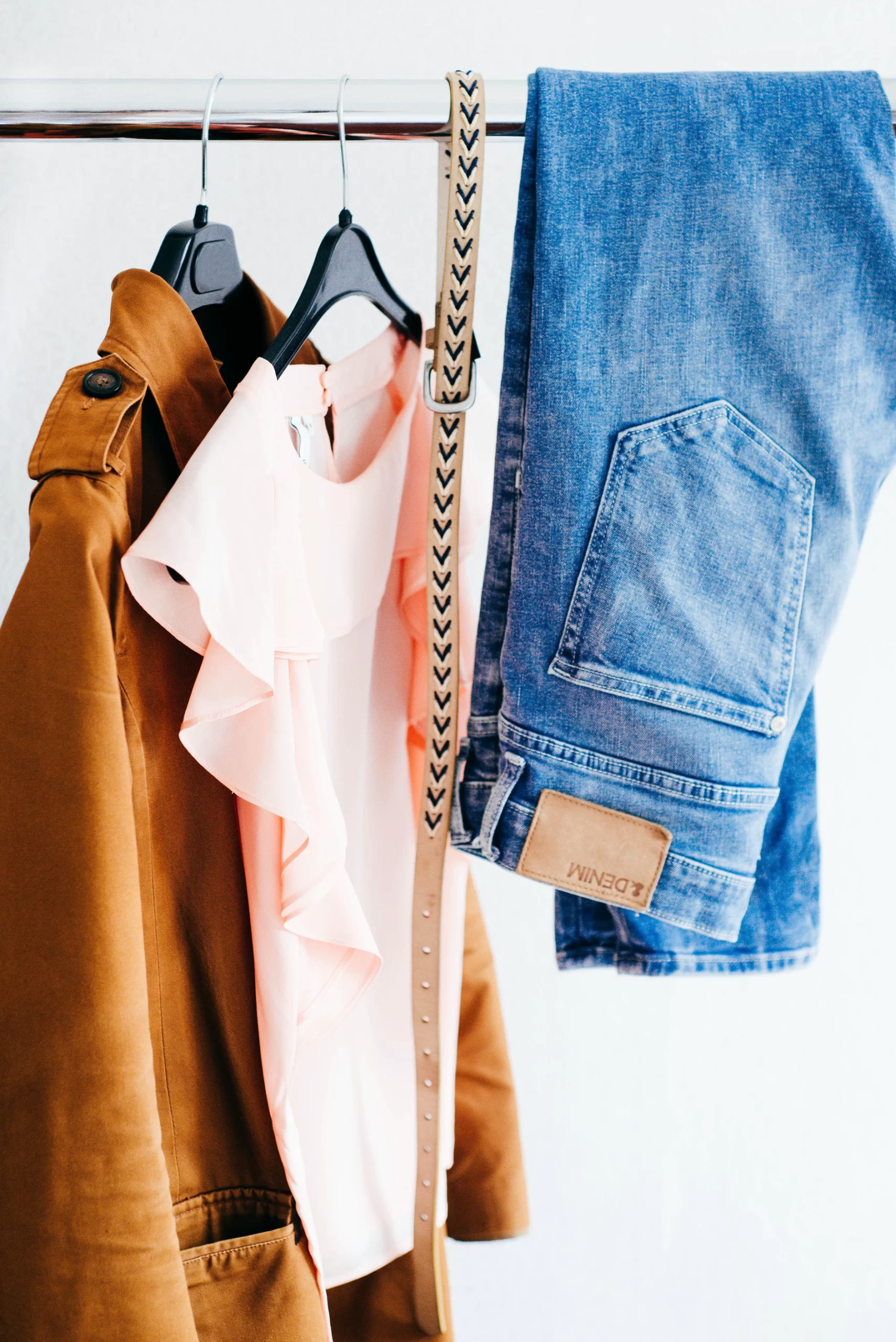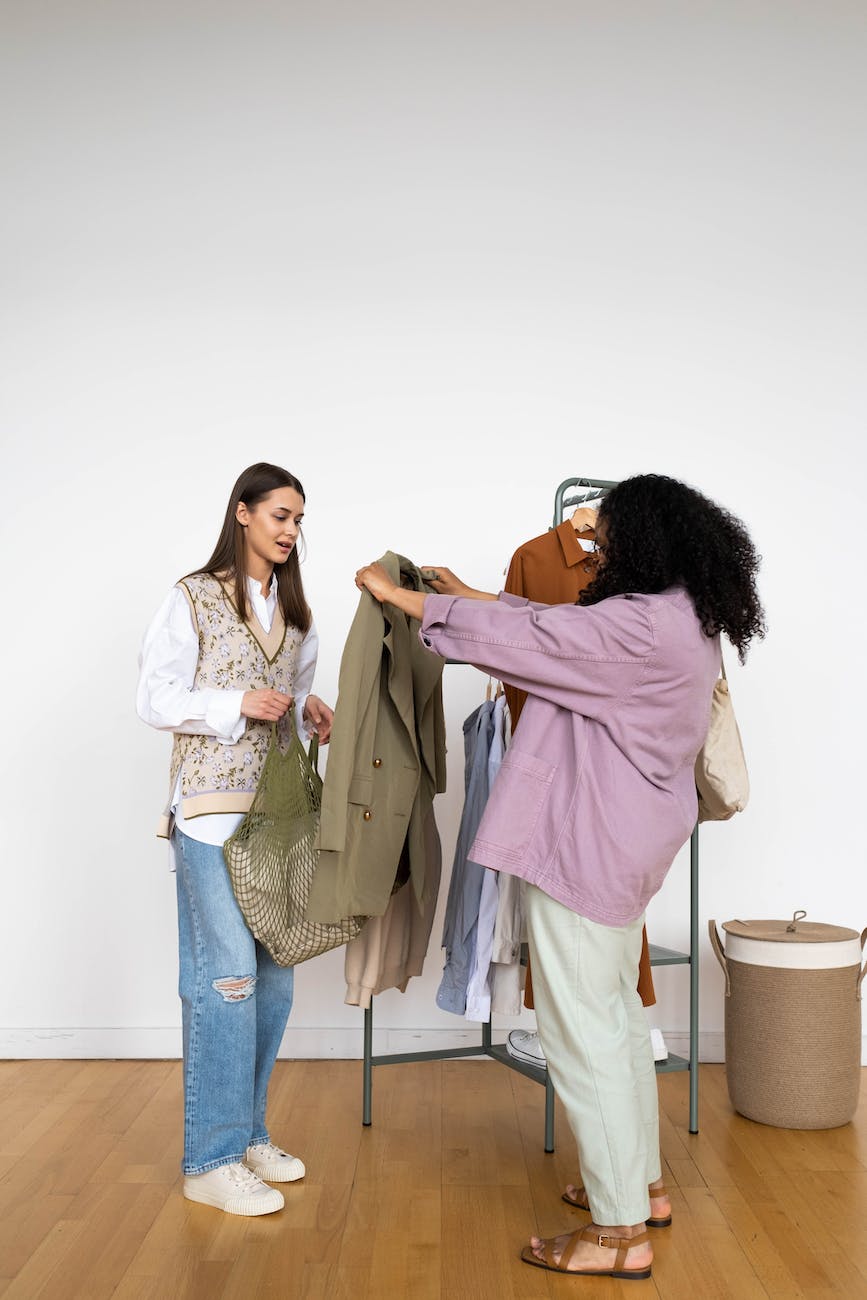Free Shipping Over $95

The eco-sustainable fashion trends that will sweep the world this year
As the importance of sustainability continues to grow, fashion trends are shifting towards more eco-sustainable practices. This year we can expect to see exciting fashion trends that prioritize the environment and ethical production methods.. From upcycling and slow fashion to plant-based leather alternatives and innovative eco-friendly materials, these trends will shape the future of fashion. In this article, we will explore the latest eco-sustainable fashion trends that are set to sweep the world this year
Minimalism and Capsule Wardrobes: Minimalism and capsule wardrobes are trends that promote intentional and mindful consumption. By curating a collection of essential and versatile clothing items, you can reduce the need for excessive shopping and impulse purchases. This approach encourages individuals to focus on quality over quantity, invest in timeless pieces, and embrace a simpler and more sustainable lifestyle. By adopting a minimalist mindset and embracing capsule wardrobes, you can create a more sustainable and clutter-free wardrobe.

Eco-Friendly Materials: Innovative eco-friendly materials are being developed to replace traditional fabrics that have a significant environmental impact. For example, fabrics made from recycled plastic bottles, organic cotton, hemp, and bamboo are becoming increasingly common. These materials require fewer resources, produce fewer greenhouse gas emissions, and reduce the demand for virgin materials. By opting for clothing made from eco-friendly materials, you support a more sustainable fashion industry and help reduce the accumulation of waste

Upcycling: Upcycling is a creative and eco-friendly trend that involves transforming discarded or old materials into new and fashionable pieces. Designers and artisans are finding innovative ways to repurpose fabrics, vintage clothing, and even household items to create unique and sustainable fashion items. Upcycling not only reduces waste but also encourages creativity and individuality in fashion. By embracing upcycled fashion, you can contribute to a circular economy and reduce your environmental footprint.

Slow Fashion: In contrast to fast fashion, which promotes quick turnover and mass production, slow fashion focuses on quality, longevity, and ethical production. Slow fashion encourages conscious consumerism and emphasizes investing in well-made, timeless pieces that will last for years. This trend promotes fair labor practices, transparency in the supply chain, and a more sustainable approach to fashion. By embracing slow fashion, you can reduce waste, support ethical brands, and cultivate a more mindful and intentional wardrobe.

Transparency and Ethical Fashion:Transparency and ethical fashion are gaining momentum as consumers demand greater accountability from brands. People are becoming more conscious of the working conditions and environmental impact associated with the production of their clothing. Brands that prioritize transparency, fair trade practices, and sustainable sourcing are gaining popularity. By supporting ethical fashion brands and demanding transparency, you can contribute to a fashion industry that values both people and the planet.

Plant-Based Leather Alternatives: As the harmful environmental impact of the leather industry becomes more apparent, plant-based leather alternatives are gaining popularity. Innovations in materials such as mushroom leather, pineapple leather (Piñatex), and apple leather offer cruelty-free and eco-friendly alternatives to traditional animal-derived leather. These plant-based materials mimic the look and feel of leather while reducing the environmental footprint associated with animal agriculture. By choosing plant-based leather alternatives, you can make a stylish and sustainable statement.

Renting and Swapping: The rise of clothing rental and swapping platforms offers a sustainable alternative to traditional shopping. Instead of buying new clothes for every occasion, individuals can rent or swap outfits, reducing the demand for new garments and the associated waste. This trend promotes a circular economy, where clothing items are shared and reused, minimizing the environmental impact of fashion. By participating in clothing rental or swapping services, you can enjoy new styles while reducing your carbon footprint.

Digital Fashion and Virtual Try-Ons: Advancements in technology have given rise to digital fashion and virtual try-on experiences. These innovations allow consumers to virtually try on clothes without physically owning them. Digital fashion reduces the need for physical production and transportation of garments, minimizing waste and carbon emissions. By embracing digital fashion and virtual try-ons, you can explore new styles and experiment with different lookswhile reducing your environmental impact.


